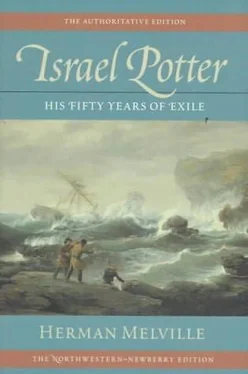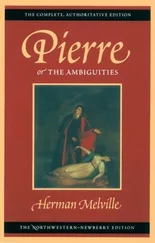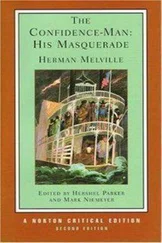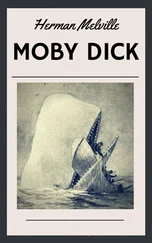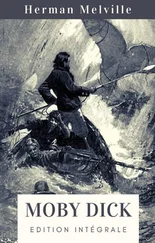Herman Melville - Israel Potter. Fifty Years of Exile
Здесь есть возможность читать онлайн «Herman Melville - Israel Potter. Fifty Years of Exile» весь текст электронной книги совершенно бесплатно (целиком полную версию без сокращений). В некоторых случаях можно слушать аудио, скачать через торрент в формате fb2 и присутствует краткое содержание. Жанр: Классическая проза, на английском языке. Описание произведения, (предисловие) а так же отзывы посетителей доступны на портале библиотеки ЛибКат.
- Название:Israel Potter. Fifty Years of Exile
- Автор:
- Жанр:
- Год:неизвестен
- ISBN:нет данных
- Рейтинг книги:4 / 5. Голосов: 1
-
Избранное:Добавить в избранное
- Отзывы:
-
Ваша оценка:
- 80
- 1
- 2
- 3
- 4
- 5
Israel Potter. Fifty Years of Exile: краткое содержание, описание и аннотация
Предлагаем к чтению аннотацию, описание, краткое содержание или предисловие (зависит от того, что написал сам автор книги «Israel Potter. Fifty Years of Exile»). Если вы не нашли необходимую информацию о книге — напишите в комментариях, мы постараемся отыскать её.
Israel Potter. Fifty Years of Exile — читать онлайн бесплатно полную книгу (весь текст) целиком
Ниже представлен текст книги, разбитый по страницам. Система сохранения места последней прочитанной страницы, позволяет с удобством читать онлайн бесплатно книгу «Israel Potter. Fifty Years of Exile», без необходимости каждый раз заново искать на чём Вы остановились. Поставьте закладку, и сможете в любой момент перейти на страницу, на которой закончили чтение.
Интервал:
Закладка:
As he was one day gravelling a little by-walk, wrapped in thought, the King turning a clump of bushes, suddenly brushed Israel's person.
Immediately Israel touched his hat-but did not remove it-bowed, and was retiring; when something in his air arrested the King's attention.
"You ain't an Englishman, — no Englishman-no, no."
Pale as death, Israel tried to answer something; but knowing not what to say, stood frozen to the ground.
"You are a Yankee-a Yankee," said the King again in his rapid and half-stammering way.
Again Israel assayed to reply, but could not. What could he say? Could he lie to a King?
"Yes, yes, — you are one of that stubborn race, — that very stubborn race.
What brought you here?"
"The fate of war, sir."
"May it please your Majesty," said a low cringing voice, approaching,
"this man is in the walk against orders. There is some mistake, may it please your Majesty. Quit the walk, blockhead," he hissed at Israel.
It was one of the junior gardeners who thus spoke. It seems that Israel had mistaken his directions that morning.
"Slink, you dog," hissed the gardener again to Israel; then aloud to the King, "A mistake of the man, I assure your Majesty."
"Go you away-away with ye, and leave him with me," said the king.
Waiting a moment, till the man was out of hearing, the king again turned upon Israel.
"Were you at Bunker Hill? — that bloody Bunker Hill-eh, eh?"
"Yes, sir."
"Fought like a devil-like a very devil, I suppose?"
"Yes, sir."
"Helped flog-helped flog my soldiers?"
"Yes, sir; but very sorry to do it."
"Eh? — eh?-how's that?"
"I took it to be my sad duty, sir."
"Very much mistaken-very much mistaken, indeed. Why do ye sir me? — eh?
I'm your king-your king."
"Sir," said Israel firmly, but with deep respect, "I have no king."
The king darted his eye incensedly for a moment; but without quailing, Israel, now that all was out, still stood with mute respect before him.
The king, turning suddenly, walked rapidly away from Israel a moment, but presently returning with a less hasty pace, said, "You are rumored to be a spy-a spy, or something of that sort-ain't you? But I know you are not-no, no. You are a runaway prisoner of war, eh? You have sought this place to be safe from pursuit, eh? eh? Is it not so? — eh? eh? eh?"
"Sir, it is."
"Well, ye're an honest rebel-rebel, yes, rebel. Hark ye, hark. Say nothing of this talk to any one. And hark again. So long as you remain here at Kew, I shall see that you are safe-safe."
"God bless your Majesty!"
"Eh?"
"God bless your noble Majesty?"
"Come-come-come," smiled the king in delight, "I thought I could conquer ye-conquer ye."
"Not the king, but the king's kindness, your Majesty."
"Join my army-army."
Sadly looking down, Israel silently shook his head.
"You won't? Well, gravel the walk then-gravel away. Very stubborn race-very stubborn race, indeed-very-very-very."
And still growling, the magnanimous lion departed. How the monarch came by his knowledge of so humble an exile, whether through that swift insight into individual character said to form one of the miraculous qualities transmitted with a crown, or whether some of the rumors prevailing outside of the garden had come to his ear, Israel could never determine. Very probably, though, the latter was the case, inasmuch as some vague shadowy report of Israel not being an Englishman, had, a little previous to his interview with the king, been communicated to several of the inferior gardeners. Without any impeachment of Israel's fealty to his country, it must still be narrated, that from this his familiar audience with George the Third, he went away with very favorable views of that monarch. Israel now thought that it could not be the warm heart of the king, but the cold heads of his lords in council, that persuaded him so tyrannically to persecute America. Yet hitherto the precise contrary of this had been Israel's opinion, agreeably to the popular prejudice throughout New England.
Thus we see what strange and powerful magic resides in a crown, and how subtly that cheap and easy magnanimity, which in private belongs to most kings, may operate on good-natured and unfortunate souls. Indeed, had it not been for the peculiar disinterested fidelity of our adventurer's patriotism, he would have soon sported the red coat; and perhaps under the immediate patronage of his royal friend, been advanced in time to no mean rank in the army of Britain. Nor in that case would we have had to follow him, as at last we shall, through long, long years of obscure and penurious wandering.
Continuing in the service of the king's gardeners at Kew, until a season came when the work of the garden required a less number of laborers, Israel, with several others, was discharged; and the day after, engaged himself for a few months to a farmer in the neighborhood where he had been last employed. But hardly a week had gone by, when the old story of his being a rebel, or a runaway prisoner, or a Yankee, or a spy, began to be revived with added malignity. Like bloodhounds, the soldiers were once more on the track. The houses where he harbored were many times searched; but thanks to the fidelity of a few earnest well-wishers, and to his own unsleeping vigilance and activity, the hunted fox still continued to elude apprehension. To such extremities of harassment, however, did this incessant pursuit subject him, that in a fit of despair he was about to surrender himself, and submit to his fate, when Providence seasonably interposed in his favor.
CHAPTER VI
ISRAEL MAKES THE ACQUAINTANCE OF CERTAIN SECRET FRIENDS OF AMERICA, ONE
OF THEM BEING THE FAMOUS AUTHOR OF THE "DIVERSIONS OF PURLEY," THESE
DESPATCH HIM ON A SLY ERRAND ACROSS THE CHANNEL
At this period, though made the victims indeed of British oppression, yet the colonies were not totally without friends in Britain. It was but natural that when Parliament itself held patriotic and gifted men, who not only recommended conciliatory measures, but likewise denounced the war as monstrous; it was but natural that throughout the nation at large there should be many private individuals cherishing similar sentiments, and some who made no scruple clandestinely to act upon them.
Late one night while hiding in a farmer's granary, Israel saw a man with a lantern approaching. He was about to flee, when the man hailed him in a well-known voice, bidding him have no fear. It was the farmer himself.
He carried a message to Israel from a gentleman of Brentford, to the effect, that the refugee was earnestly requested to repair on the following evening to that gentleman's mansion.
At first, Israel was disposed to surmise that either the farmer was playing him false, or else his honest credulity had been imposed upon by evil-minded persons. At any rate, he regarded the message as a decoy, and for half an hour refused to credit its sincerity. But at length he was induced to think a little better of it. The gentleman giving the invitation was one Squire Woodcock, of Brentford, whose loyalty to the king had been under suspicion; so at least the farmer averred. This latter information was not without its effect.
At nightfall on the following day, being disguised in strange clothes by the farmer, Israel stole from his retreat, and after a few hours' walk, arrived before the ancient brick house of the Squire; who opening the door in person, and learning who it was that stood there, at once assured Israel in the most solemn manner, that no foul play was intended. So the wanderer suffered himself to enter, and be conducted to a private chamber in the rear of the mansion, where were seated two other gentlemen, attired, in the manner of that age, in long laced coats, with small-clothes, and shoes with silver buckles.
Читать дальшеИнтервал:
Закладка:
Похожие книги на «Israel Potter. Fifty Years of Exile»
Представляем Вашему вниманию похожие книги на «Israel Potter. Fifty Years of Exile» списком для выбора. Мы отобрали схожую по названию и смыслу литературу в надежде предоставить читателям больше вариантов отыскать новые, интересные, ещё непрочитанные произведения.
Обсуждение, отзывы о книге «Israel Potter. Fifty Years of Exile» и просто собственные мнения читателей. Оставьте ваши комментарии, напишите, что Вы думаете о произведении, его смысле или главных героях. Укажите что конкретно понравилось, а что нет, и почему Вы так считаете.
